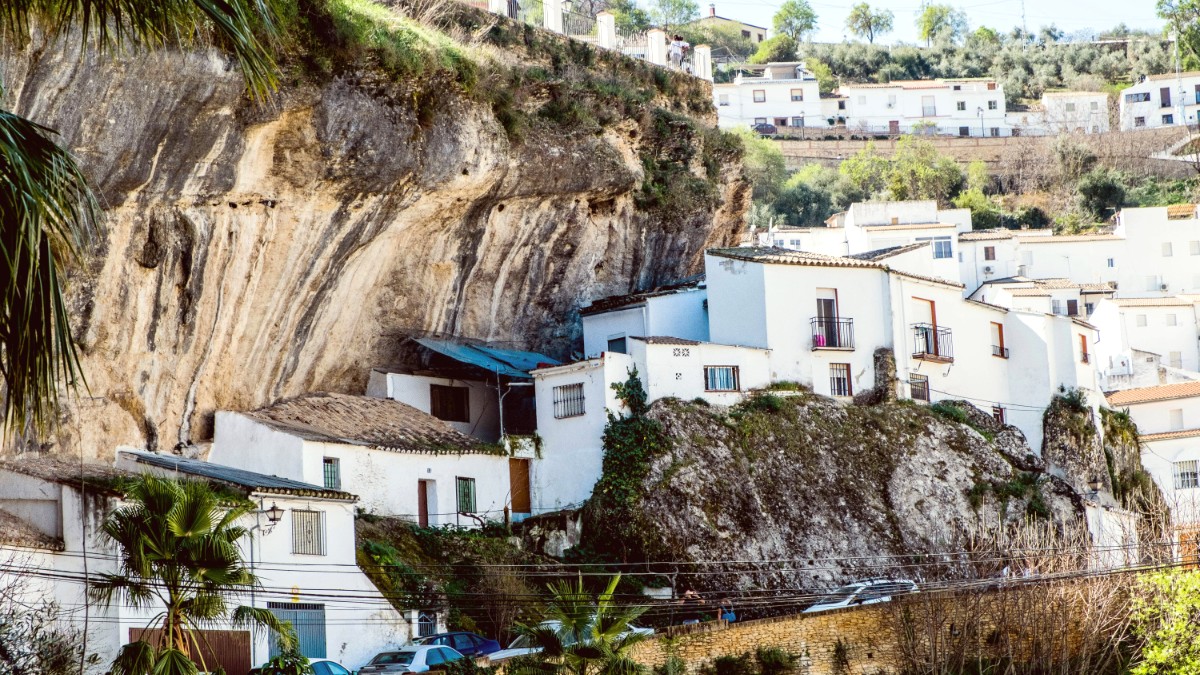
Andalucia, Spain
Marbella has a Mediterranean climate, with warm, dry summers and mild, wet winters. The Sierra Blanca mountains protect the city, creating an unique microclimate with comfortable temperatures year-round.
Temperature and precipitation vary throughout the year. Summer (June - August) brings hot, dry weather (25°C-30°C/77°F-86°F), with rare rain. Autumn (September - November) sees temperatures cool gradually (25°C to 15°C/77°F to 59°F), with increased rainfall in October and November. Winter (December - February) brings mild conditions (12°C-15°C/54°F-59°F) and moderate rain. Spring (March - May) has rising temperatures (15°C-25°C/59°F-77°F) and decreasing precipitation.
Summers experience prolonged heatwaves where temperatures exceed 40°C (104°F). During these times, consistent hydration is important. Use Sun protection.
Strong winds, known as Levante (from the Atlantic) or Terral (from the interior), can occur occasionally. Levante winds make the sea choppy, while Terral winds bring dry, hot air from inland.
June - August
Ideal weather for beaches and water activities. Lively atmosphere.
Highest crowds, peak prices. Intense heat may make daytime sightseeing uncomfortable.
April - May & Sept - Oct
Pleasant temperatures, smaller crowds, lower prices. Good for sightseeing and hiking.
Higher chance of rainfall (notably in October). Some seasonal businesses may have reduced hours.
November - March
Lowest prices for flights and lodging. Few tourists, quiet experience. Mild climate for golf and cultural visits.
Cooler temperatures and higher rain chances. Some tourist businesses may close or have reduced hours.
Beach and Water Sports: June to September have the warmest sea temperatures and most reliable sun. Golf: October to May presents cooler, comfortable conditions. Sightseeing and Hiking (like La Concha Mountain): April to May and September to October have pleasant temperatures for active exploration.
Nightlife: June to August are the months when Marbella's party scene is at its peak. Cultural Exploration: November to March allows a relaxed pace to visit museums, historical sites, and local towns without crowds.
Beaches, water sports, nightlife.
Hiking, sightseeing, comfortable golf rounds.
Golf, cultural visits, regional exploration.
October through May.
November through March.
Spain is part of the Schengen Area. This influences entry requirements for travelers from different countries.
Citizens of many countries do not need a visa for tourist or business visits lasting up to 90 days within any 180-day period. This includes citizens from the United States, Canada, Australia, New Zealand, the United Kingdom, and most European Union countries.
Citizens from countries not on the visa-free list submit an application for a Schengen visa. This process occurs at the Spanish embassy or consulate in your country of residence.
Marbella offers experiences across a broad price spectrum, from budget-friendly options to high-end luxury.
Awareness of common concerns and knowing how to access services contribute to a positive experience.
Summers in Marbella feature high temperatures and strong sun. Sunburn and heatstroke are common concerns. Dehydration risk is elevated during summer months. Mosquitoes can be present, especially in warmer months near standing water. Jellyfish stings are possible in coastal waters, notably in late summer. Minor cuts and scrapes occur from exploring or beach activities.
While Spain has high food hygiene standards, some travelers experience mild digestive upset.
Protect against sunburn and heatstroke in summer with high temperatures and strong sun.
Use SPF 50+ sunscreen, wear Hats and Sunglasses. Seek shade midday. Stay hydrated.
Avoid prolonged direct sun exposure during peak hours.
Mosquitoes are present, especially in warmer months. Minor cuts and scrapes are possible from activities.
Use Insect repellent. Carry a basic First aid kit with Band-aids and antiseptic wipes.
Do not ignore small injuries. Seek medical advice for severe insect bites.
Mild digestive upset is possible for some travelers. Tap water is safe. Food hygiene standards are high.
Practice good hand hygiene. Bring Anti-diarrhea medication and Pain relievers. LifeStraw offers water filtration solutions.
Avoid unwashed produce. Seek medical attention for severe or persistent symptoms.
| Service | Information | Notes |
|---|---|---|
| Public Hospitals | Hospital Costa del Sol is the main public hospital. | EU citizens with EHIC card access state healthcare. |
| Private Clinics | Numerous private clinics (e.g., Quirónsalud Marbella) provide services. | Non-EU citizens benefit from comprehensive travel insurance. |
| Pharmacies | Identified by a green cross. Provide advice for minor ailments, dispense OTC medications. | Many pharmacists communicate in English. |
Travel insurance is highly recommended for all travelers, especially non-EU citizens. A comprehensive policy covers medical emergencies, trip cancellation, and lost baggage.
Covers medical expenses, hospitalization, and emergency medical evacuation. Consider SafetyWing for digital nomads.
Covers trip cancellation or interruption due to unforeseen circumstances. Look for policies that cover personal liability. World Nomads is popular for adventurous travelers.
Covers lost, delayed, or stolen baggage. Review policies for coverage limits, exclusions, and pre-existing condition clauses. Insubuy offers various coverage.